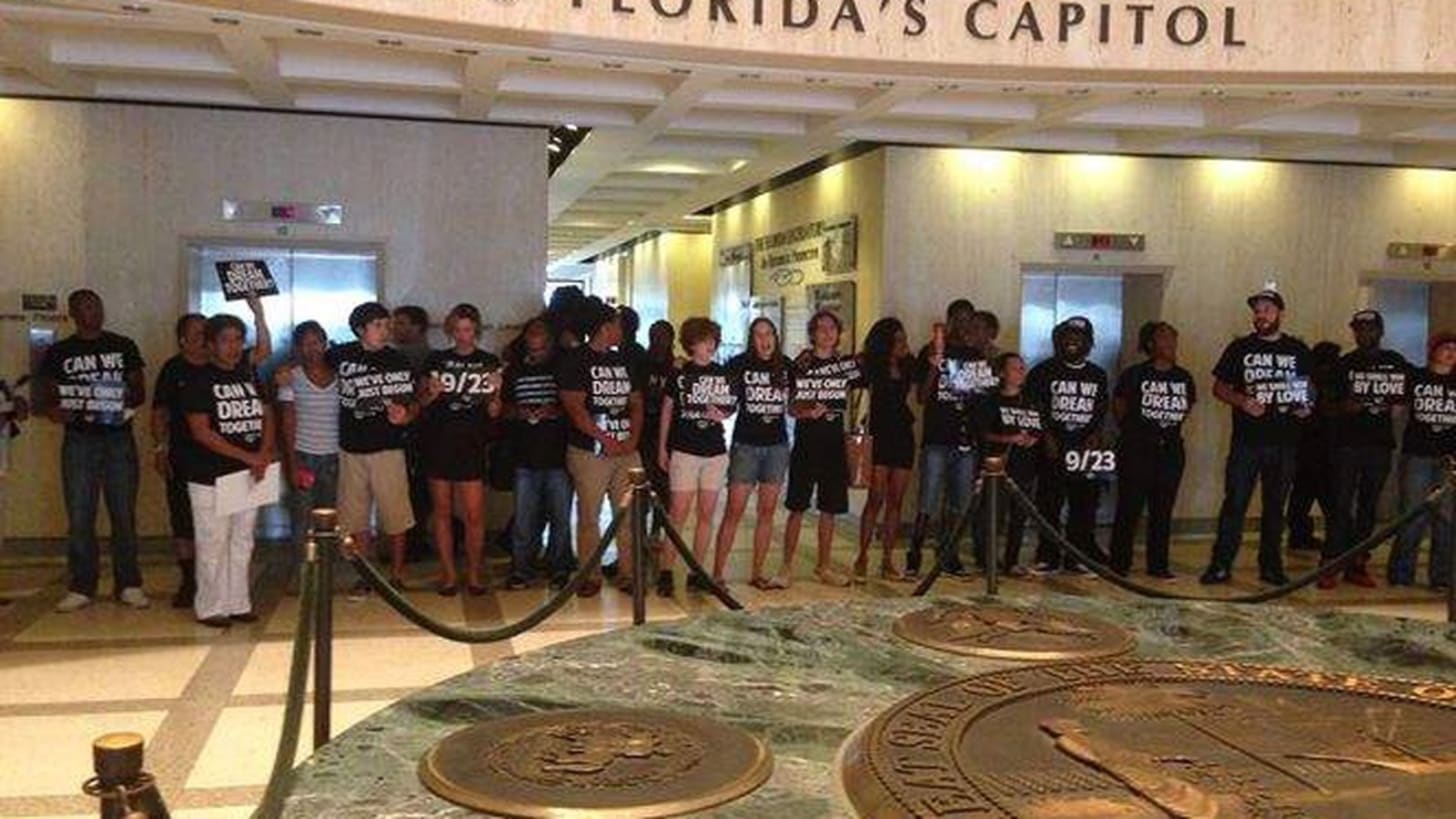What We Can Learn from Losing
New York magazine dedicated their recent issue to the ten year anniversary of Trayvon Martin’s murder and the birth of the Black Lives Matter movement. The issue included a beautiful profile of the Dream Defenders, the Florida-based youth-led racial justice organization. The organization was first galvanized by the acquittal of George Zimmerman for the murder of 17-year-old Trayvon Martin. After Zimmerman’s acquittal, the Dream Defenders occupied the Florida state capitol for 31 days to demand the repeal of the state’s stand your ground law. They lost.
I felt a pit in my stomach remembering that time, and imagining what the loss must of felt like for the young Dream Defenders themselves. But I also was heartened by what happened next, because from that defeat, the Dream Defenders only grew stronger.
This is a lesson I struggle to remember. Movements for social justice lose far more often than they win. It is an important lesson at a time when I am constantly looking for sources of hope.
It seems like a somewhat obvious lesson with abundant recent examples. The Water Protectors at Standing Rock did not stop the Dakota Access Pipeline. Here in New York City, we fought and lost our battle in 2020 for #Budgetjustice and to #DefundNYPD.
In recent years I have also experienced losses on a personal level. While painful, these losses have also taught me so much. Loss teaches us invaluable truths about ourselves. This is true for individuals as well as communities and movements.
But loss is often erased from historical narratives. Perhaps we mean to glorify the winners and their triumphs. However, a byproduct of this sanitized storytelling is to portray victories as inevitable. In doing so, this actually disempowers movements for social change. If the hard won victories of the Black freedom struggle (Civil Rights Act and Voting Rights Act as two examples) were only a matter of time, the result of some larger moral arc of the universe, it also implies that they were benevolently (albeit reluctantly) doled out by the powerful. In fact, they were seized by the relentless work of thousands of people.
Personally, the simple, linear version of movement history I learned growing up (Racism was bad. MLK fought racism. Racism ended.) set me up for failure when I was ready to join movements for social justice. I assumed that because our causes were just, victory was inevitable. Instead I saw Daniel Pantaleo, who murdered Eric Garner in 2014, retain his job through most of Mayor de Blasio’s two terms. I saw Donald Trump elected and Brett Kavanaugh confirmed to the Supreme Court. Over and over I have seen losses pile up. Without a textured history of social movements to draw on, these defeats feel overwhelming.
My belief in the inevitability of social justice also comes from white entitlement. When you are used to getting your way, you can apply that same logic elsewhere, including complex social issues. The truth is, systemic change requires more than recognizing the existence of a problem.
The Dream Defenders’ story reminds me that fights against powerful entrenched interests may yield a lot of losses. But those losses still hold value. Losses can teach lessons for the next battle. And by fighting publicly, even when you lose, you can make gains. You can inspire bystanders to join your cause, introduce new ideas into the broader public discourse, and transform people’s beliefs about what is possible. I’m grateful to the Dream Defenders and other freedom fighters for this lesson.
I’d love to hear from you in the comments: What is a loss (whether personal or as part of a movement) that taught you a valuable lesson?
Other recent writing:
[The Educator’s Room] Fighting Fascism from Our Classrooms
Other recommendations for listening/reading/watching:
The Police State Is Failing Officers Too by Scott Hechinger
Preaching to the Choir by Rebecca Solnit



